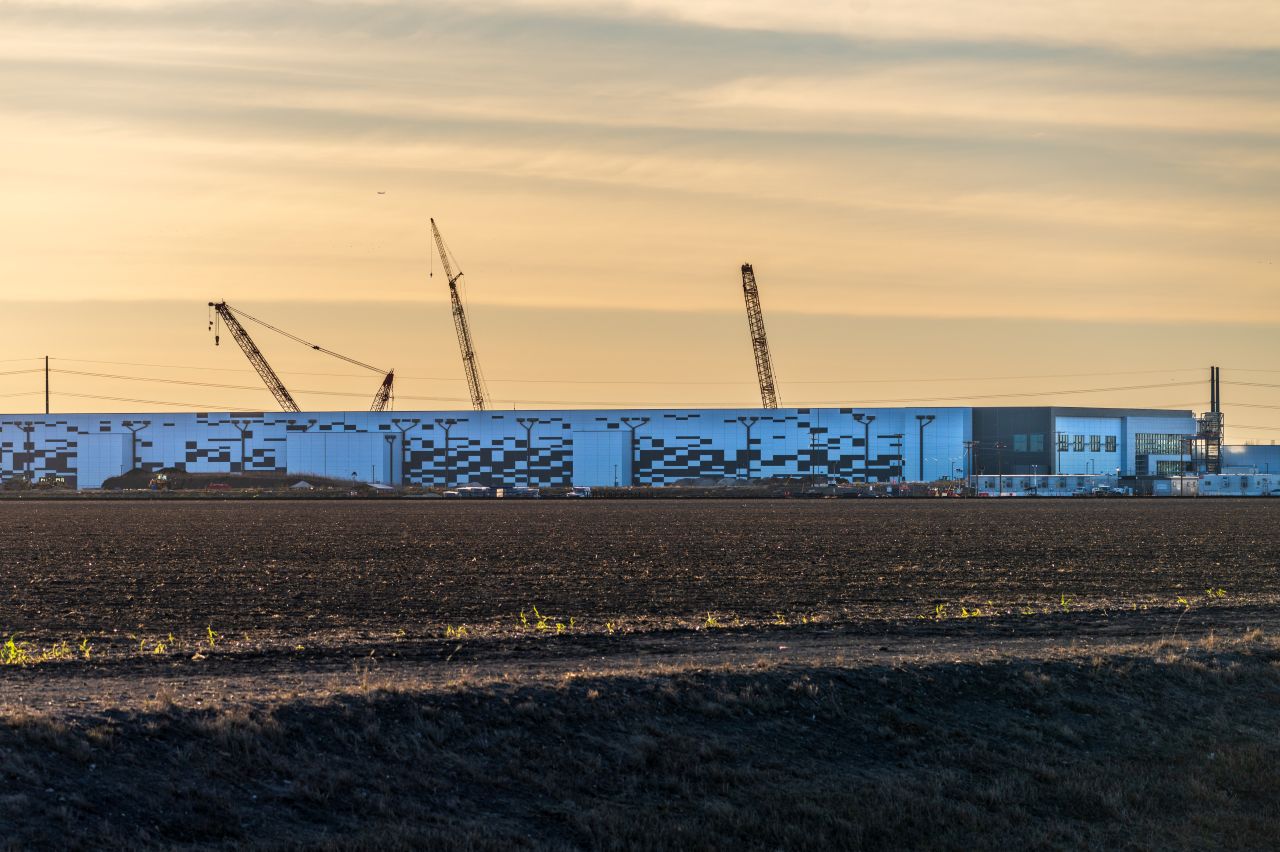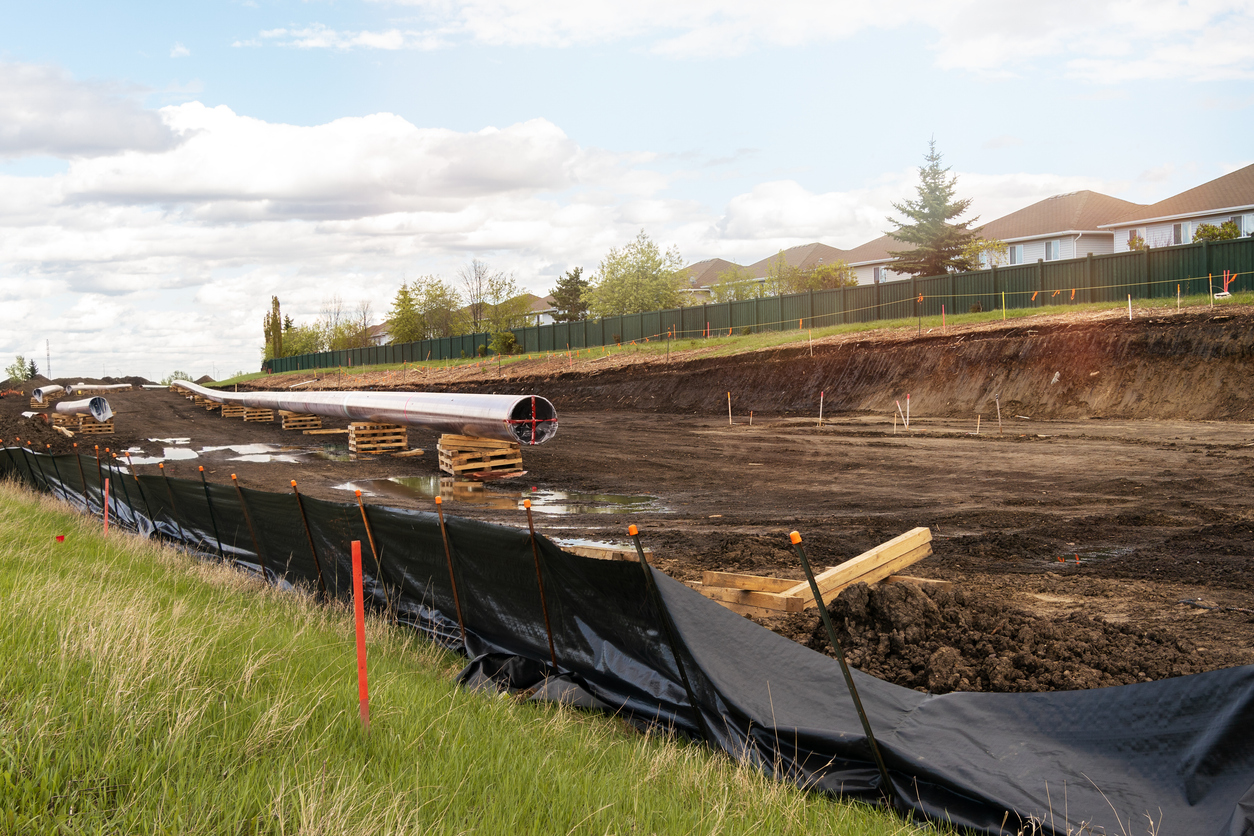Latest version of energy permitting fast-tracking bill has environmental movement balking

In late July, senators Joe Manchin and John Barrasso, an Independent and Republican from two of the biggest fossil-fuel producing states in America (West Virginia and Wyoming) announced the latest iteration of their long-sought bill that would accelerate the permitting process for energy projects—including LNG plants, electricity transmission lines, clean energy and fossil fuel power plants.
Called the Energy Permitting Reform Act of 2024, the senators said the legislation would, “strengthen American energy security by accelerating the permitting process for critical energy and mineral projects of all types.” But environmental groups criticize the bill for giving away too much to polluting industries and fast-tracking a review process meant to protect public health and the environment.
The bill passed out of the Senate Energy and Natural Resources committee by a bipartisan vote of 15-4 on July 31. The legislation has the support of a number of large industry groups, including the Steel Manufacturers Association, the American Chemistry Council, the National Association of Manufacturers, and the American Clean Power Association, whose CEO Jason Grumet, said of the bill that, “we have the technology, workforce, and financial capital to build great things, but we lack a governing process that is designed to succeed. This legislation changes that.”
In his year and a half leading the American Clean Power Association, Grumet has styled himself a centrist not opposed to supporting big energy companies that have both renewable and fossil fuel assets. The American Clean Power Association— launched in 2021 as a rebranding and expansion of the former American Wind Energy Association—has over 800 member companies, ranging from renewable developers to those with fossil fuel interests including utilities and multinational energy companies like Shell and BP.
Grumet’s approach has ruffled the feathers of many environmental and climate advocates, who believe a clean power industry group should stand more firmly with clean energy and low-carbon interests rather than greenwash dirty fuels like natural gas.
Before taking the helm of the American Clean Power Association, Grumet founded the Bipartisan Policy Center in 2007 and ran it for 15 years. During and after his tenure, the Bipartisan Policy Center has been funded in part by, among many others, the fossil fuel companies ConocoPhillips, Chevron, ExxonMobil, Exelon, and the American Petroleum Institute. The center gave its “Patriot Award” to former President George W. Bush in March 2023.
While running the Bipartisan Policy Center, Grumet supported energy policies that helped to create the LNG export boom and the repeal by Congress of the U.S. ban on crude oil exports, according to Lukas Ross, senior energy program manager at Friends of the Earth, who called these policies “the two most disastrous energy policy developments of the last decade.”
“I think that one wonders if Jason Grumet is still working for the fossil fuel industry from his perch at the Clean Power Association,” said Ross. “The climate movement is absolutely right to balk at this permitting deal, as the fossil fuel industry is basically running the table.”
The American Clean Power Association’s board includes several members with links to fossil fuels. For instance, the board includes John L. Pemberton, a senior vice president from Southern Power, a subsidiary of Southern Company, which generated 54 percent of its energy supply from natural gas in 2023.
Ann Alexander, a consultant with Devonshire Strategies and longtime environmental attorney, said the American Clean Power Association represents a substantial number of clean energy companies that are subsidiaries or affiliates of fossil fuel companies or utilities.
“So for them, taking out the National Environmental Policy Act (NEPA) is a win for their fossil fuel interests regardless of whether it’s helpful to the renewable energy industry,” Alexander said.
Alexander said that while the Energy Permitting Reform Act of 2024 is a mix of the good, the bad, and the ugly, it is particularly weighted in the ugly category, especially from an environmental perspective.
“There are provisions stripping large amounts of drilling activity out of federal jurisdiction and gutting analytical requirements for LNG approvals,” she said. “While lots of past permitting proposals have thrown NEPA and concerns with fossil fuel extraction under the bus in exchange for furthering renewable energy in some manner, this one leans extraordinarily hard into the fossil fuel industry giveaways.”
Alexander said the most positive aspect of the bill is its support for electrical transmission planning, although the bill could go a lot further in this regard. For instance, the legislation fails to tackle developer and community relationships and how to navigate potential opposition.
“Other proposals have encouraged the use of Community Benefits Agreements (CBAs) to make sure that benefits of transmission line construction flow to communities being asked to host them,” Alexander said. “This bill doesn't go out on even modest limbs like that.”
Alexander narrowed the worst aspects of the bill down to several elements. First, one section of the bill (section 230) removes from federal jurisdiction any drilling activity in a location where the federal government owns 50 percent or less of the subsurface mineral rights under non-federal land.
“That is not an uncommon scenario and removing it from federal jurisdiction takes it out of NEPA protection—not to mention all of the other federal laws that come into play with federal permits,” she said.
Second, there are the provisions in the bill that will create a tight permitting review timeframe for LNG projects that will curtail meaningful reviews under NEPA and “set up the ability of an LNG-friendly administration to essentially rubber stamp applications,” Alexander said.
The Energy Permitting Reform Act of 2024 includes a provision requiring the Energy Secretary to make a yes or no decision on whether an LNG export application is within the public interest within 90 days of the publication of final environmental review documents. If the secretary fails to approve or reject an application in that time, it will be automatically approved—a controversial procedure for environmental review documents, which even upon completion, can require additional time to revise and update.
Alexander said that the bill also weaponizes scientific deliberation and public comment to make sure that the Department of Energy can continue to use insufficient studies. The legislation also subjects supplemental studies to new analytical requirements that the existing studies were never required to meet.
Josh Axelrod, who focuses on energy and public lands at the Natural Resources Defense Council, said that the environmentally good things in the Energy Permitting Reform Act of 2024 come along with some exceptional handouts for fossil fuels. He said the LNG provisions could lead to basically automatic approval of LNG terminals, “which is deeply concerning from a climate perspective.” A 2022 Sierra Club estimate puts lifecycle emissions from full operation of the U.S.’s existing LNG export facilities at 516 million metric tons of carbon dioxide equivalent annually, comparable to emissions from over 111 million cars or 138 coal plants.
Axelrod said something that gets lost in the conversation about the bill is that there is really nothing in it for communities and environmental justice. In contrast, he said the bill reduces transparency and takes away the public’s ability to be aware of what is going on and to challenge new projects and permits.
For instance, the judicial review provisions of the bill would reduce the time limit to challenge a final agency decision to grant or deny authorization for a project from six years to 150 days (about 5 months). In practice, this would make it harder for a community to obtain review of agency approvals by a court.
“No one law mechanism in this bill—or anywhere else—requires a standardized notice process so the public can be made aware of proposed projects,” said Axelrod.
Lead photo: A hydraulic fracturing job site. Photo by iStockphoto.















